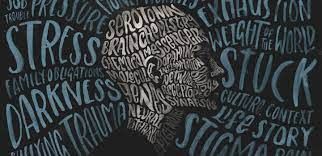
Coping with depression can be challenging, but there are many strategies and resources available to help manage symptoms and improve overall well-being. Here are some tips for coping with depression:
- Seek Professional Help: If you're struggling with depression, it's essential to seek support from a qualified mental health professional, such as a therapist, counselor, or psychiatrist. Therapy, medication, or a combination of both may be recommended depending on the severity of your symptoms.
- Build a Support Network: Surround yourself with supportive friends, family members, or support groups who can offer encouragement, understanding, and a listening ear during difficult times. Don't hesitate to reach out for help when you need it.
- Practice Self-Care: Take care of your physical and emotional needs by prioritizing self-care activities such as getting enough sleep, eating a balanced diet, exercising regularly, and engaging in activities you enjoy. Set realistic goals and celebrate small victories.
- Develop Coping Skills: Learn and practice coping skills to manage stress, anxiety, and negative thoughts associated with depression. Techniques such as mindfulness meditation, deep breathing exercises, progressive muscle relaxation, and journaling can be helpful in reducing symptoms and promoting relaxation.
- Challenge Negative Thoughts: Identify and challenge negative thought patterns and cognitive distortions that contribute to feelings of depression. Replace negative self-talk with more balanced and realistic thoughts, focusing on your strengths and accomplishments.
- Engage in Pleasant Activities: Make time for activities and hobbies that bring you joy and fulfillment, even when you don't feel motivated. Engaging in enjoyable experiences can boost your mood and provide a sense of purpose and satisfaction.
- Establish Routine: Establishing a regular daily routine can provide structure and stability, which can be particularly helpful when coping with depression. Set consistent wake-up and bedtime routines, schedule regular meals and activities, and prioritize tasks to prevent feeling overwhelmed.
- Limit Stress: Identify sources of stress in your life and take steps to minimize or eliminate them whenever possible. Practice time management, set boundaries, and delegate tasks to reduce feelings of overwhelm and anxiety.
- Stay Connected: Stay connected with friends, family, and your community, even when depression makes you want to withdraw. Reach out for social support, attend social events, or join clubs or groups with shared interests to combat feelings of isolation and loneliness.
- Be Patient and Kind to Yourself: Recovery from depression takes time, so be patient with yourself and celebrate your progress along the way. Remember that setbacks are normal, and it's okay to ask for help when you need it. Treat yourself with compassion and kindness as you navigate your journey toward healing.
Remember that everyone's experience with depression is unique, so it's essential to find coping strategies that work best for you. Don't hesitate to reach out for professional help if you're struggling to cope with depression on your own. You're not alone, and support is available.
